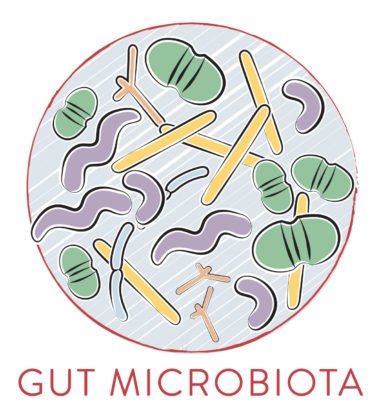
What is the Gut Microbiome and Why Should we care?
Trust Your Gut!
The Gut microbiome includes all the microorganisms that inhabit our digestive tract – that’s about 100 trillion bacteria! New research continues to demonstrate the powerful role of the microbiome within the digestive tract lining. We now understand that the digestive tract is actually the unifying or centre point of the nervous, immune and hormonal systems. It is also, in large part, responsible for the balance of neurotransmitters that control emotion and mood regulation. Many people associate a healthy microbiome as a key factor to healthy digestion and weight management but it can confer other benefits such as healthy hormone balance, kidney function, psychological health and more.
The microbiome acts much like a sophisticated phone operator -sending bi-directional communication between the digestive system and the brain. Since the enteric nervous system, neuroendocrine system and immune system all meet in the gut – a healthy and well-functioning microbiome allows for smooth communication between all of these systems. It also enables the brain to generate healthy levels of GABA (a calming amino acid – known to slow down and calm areas of the brain responsible for anxiety,
panic and even anxious depression.
Both animal and human double-blind, placebo-controlled studies corroborate these findings and show how a health microbiome can confer psychological benefit. For example, one study divided participants into 2 groups. Subjects were fed either a probiotic-containing milk drink or placebo for 3 weeks, and mood and cognition were assessed before treatment and after 10 and 20 days of consumption. Subjects
who initially scored in the lowest third for depressed mood showed significant improvement in symptoms after probiotic treatment. Another study where participants with chronic fatigue syndrome (who very often have abnormal gut microflora) – were given Lactobacillus casei for 2 months. Using the Beck Anxiety Inventory as a tool to identify changes, patients in the probiotic group reported far fewer anxiety symptoms compared to the placebo group.
So how can one create a healthy microflora in their digestive tract?
1) Minimize/decrease sugary foods – especially refined sugars – as these may cause a build-up of yeast such as candida that may displace beneficial bacteria and may cause various symptoms.
2) Relaxation/meditation – to allow the body the ability to maintain a rest/digest mode or parasympathetic state, instead of the stress of a sympathetic state. When you’re more relaxed, there is an improvement in the circulation to the gut which not only helps in digestion but also improves a healthy microflora.
Quality sleep – key to repair of the intestinal lining.
Foods high in fiber: dietary fiber sources include vegetables, fruits, psyllium, inulin, flax and more. These help keep you regular and also feed the good bacteria by acting as prebiotics.
Consume probiotic foods – before reaching for supplements it is always best to start with a diet rich in probiotics. Some of my favourites include kim chi, sauerkraut, natto and miso, homemade pickles (non-vinegar) are also great for some.
Consider probiotic supplements if you cannot stomach probiotic-rich foods or if you’ve just received a bout of antibiotics it sometimes makes sense to take a supplement. There are many strains available so knowing which ones are right for you is important!
If you need further advice make an appointment with Dr. Michna click here to book
Sources:
Foster JA, McVey Neufeld KA. Gut-brain axis: how the microbiome influences anxiety and depression.Trends Neurosci. 2013;36(5):305-312.
Benton D, Williams C, Brown A. Impact of consuming a milk drink containing a probiotic on mood and cognition. Eur J Clin Nutr. 2007;61(3):355-361.
Rao AV, Bested AC, Beaulne TM, et al. A randomized, double-blind, placebo-controlled pilot study of a
probiotic in emotional symptoms of chronic fatigue syndrome. Gut Pathog. 2009;1(1):6.
